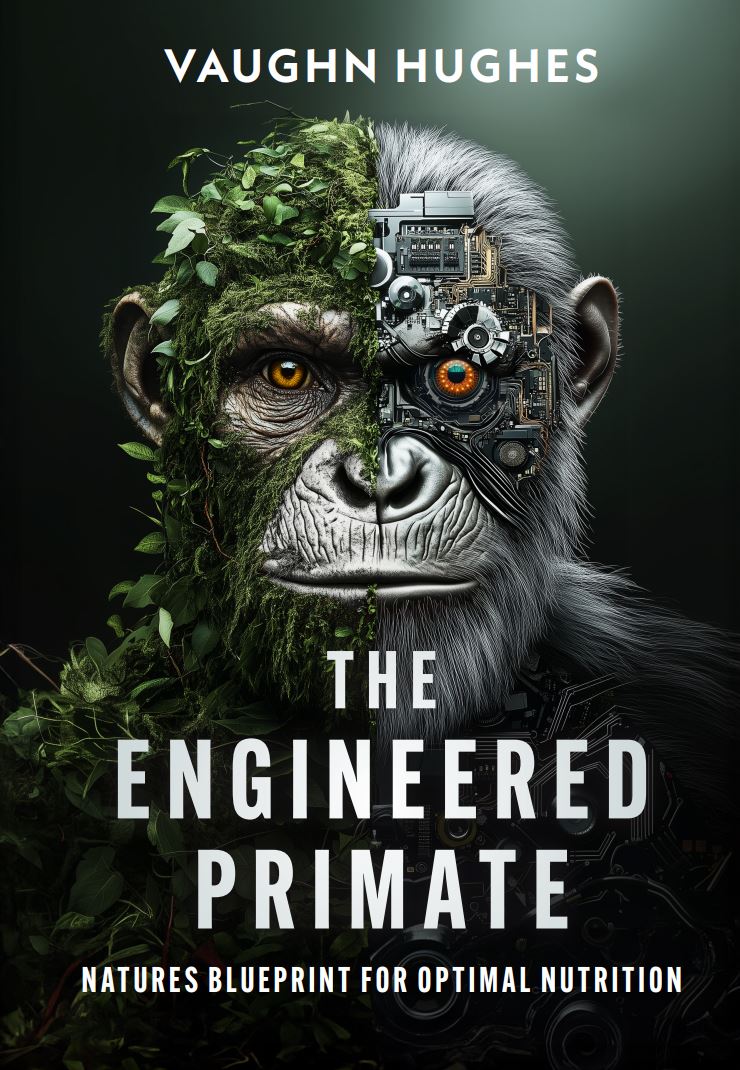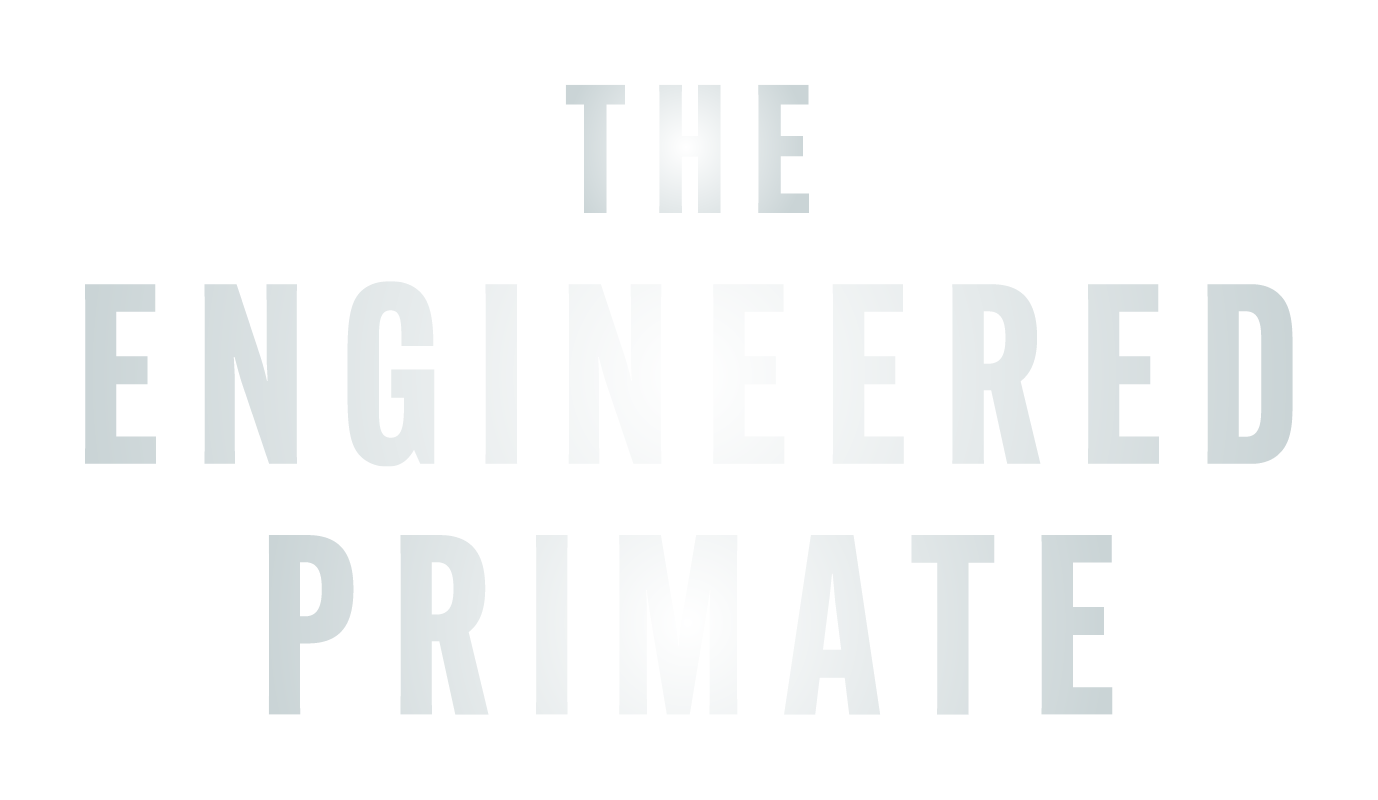FROM THE AUTHOR
Vaughn Hughes
Thank you for visiting my website.
Writing The Engineered Primate was not a path I intentionally set out to walk, yet once embarked upon, it became a journey shaped by curiosity and driven by the profound connections I discovered.
My life has been characterised by diverse experiences and constant change. Growing up, I attended several schools – starting in one country, then across multiple states in another, never quite letting me settle into any one place.
Leaving school without a clear direction, I was guided by interests, whim, and necessity. My early years included stints in retail, hospitality, government, banking, private sector, small business, construction, labour, logistics, transport, and more. I have driven forklifts, worked in a call-centre, tried tele-marketing, even did door-to-door karate sales. By the age of 25, it was fair to say I had experienced the workforce from nearly every angle imaginable.
Across my life academically, I have pursued diverse qualifications; including business, administration, fitness, nutrition, multimedia, and eventually earning a trade in electronics and communications through the Australian Army. While I’ve explored and passed subjects across numerous university disciplines, life consistently redirected my path before formal completion of any degree.
So, as the old saying goes… I am a jack of all trades, master of none. And as I approach the middle of my forties… it is with this life experience that I set upon the subject of human nutrition – a complex issue intertwined with biology, culture, and human experience. I believe my breadth of skills has afforded me a unique perspective in approaching this challenging issue.
I approached the writing of this book with an open mind, and my hope is that you read it the same way. This isn’t a diet plan or a prescription, but rather an invitation to explore the deeper connections between our biology and the natural world that shaped us.
THE STORY
The Engineered Primate

As you close this book... I hope you carry with you not conclusions but questions. Questions that challenge, inspire, and connect you to the awe of being human. For in that questioning lies our greatest capacity — not just to observe the world as it is, but to imagine what it could become.

About the Journey
It began in December 2019, after my second shoulder surgery. Life in the military takes a toll, so during recovery my wife and I decided to watch documentaries—something productive to pass the time. I had no idea that the very first one we selected would change the trajectory of my life.
This documentary introduced a fact so simple that it should have been obvious: protein comes from plants. It wasn’t a groundbreaking discovery—just basic biology. But its impact on me was profound. Up until that point, I had followed the conventional wisdom about nutrition, shaped by years in the military and my role as a fitness trainer. I thought I knew how to fuel the body for performance. I thought I understood protein.
That moment changed everything.
A medical discharge from the military gave me the time to pursue my curiosity further. I immersed myself in nutrition, health, and human physiology—reading, watching video lectures, and enrolling in university courses across nutrition, evolutionary biology, anthropology, anatomy, and more. I wasn’t looking for a formal qualification—I was looking for answers.
As I explored these fields, I saw something missing. Each discipline was rigorous in its own right, but they weren’t fully integrated. I heard professors say, “There is no biology without evolutionary biology,” yet they spoke of the human digestive system as if it had arrived in a vacuum rather than as a structure shaped by millions of years of environmental pressures.
That realisation set me on a path toward a deeper understanding of not just human digestion, but the logic of life itself.
My background in electronics and communications in the military gave me an unexpected advantage—I was trained to think in systems, signals, feedback loops, and iterative adjustments. That perspective led to Evolutionary Engineering (EE)—a framework for understanding how evolution doesn’t just shape biology but actively engineers it for survival.
From there, even bigger questions arose.
- If evolution is an ongoing process, and every meal we eat is an adaptation, why do we treat digestion as a rigid, fixed system?
- If survival is based on adaptation, how could nutrition follow a linear, deterministic model?
- If digestion had to evolve for something first, what was that original evolutionary necessity?
That last question led to the missing first principle of digestion. Digestion did not evolve for food in general—it evolved to extract energy and nutrients from plants first. Fibre was not just part of the diet—it was the architect of digestion itself. This realisation corrected a fundamental flaw in how I saw nutritional science needed to be understood.
Alongside this, I realised that digestion does not operate in fixed pathways—it can only be understood through probability. So, Probabilistic Nutrition emerged from this—a model that rejects the outdated notion of rigid nutrient absorption and instead embraces the reality of probability, feedback, and adaptation.
This book is not just about nutrition. It is about understanding the deep, systemic logic of life itself.
